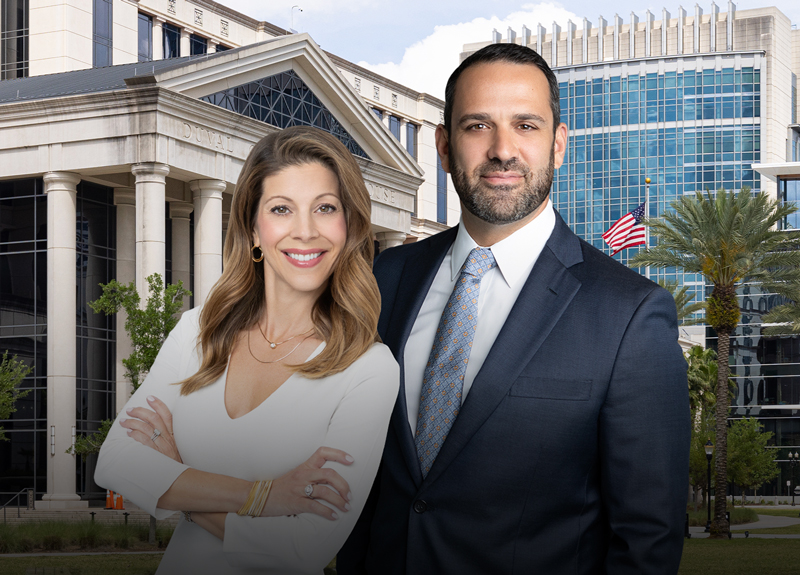The term ‘third party‘ is commonly used in personal injury law to refer to individuals or entities that may be held liable for someone else’s personal injury. This liability can include individuals who are not directly involved in an accident but whose actions or inaction contributed to the accident. Here we explore the concept of third party liability and how it applies to personal injury claims.
Workplace Accidents
Normally, workers’ compensation law applies to workplace accident injuries. Workers’ compensation damages might not be enough for you, however, because workers’ compensation covers medical bills and lost earnings but not intangible damages such as pain and suffering. This limitation might be enough to motivate you to seek a third party to file a claim against.
Third-Party Claims
If you can find a third party who is liable for your injuries, you can file an ordinary personal injury claim against them and recover both economic and non-economic damages. Examples of such third parties might include:
- Equipment manufacturers or suppliers, if the equipment used at the worksite was defective or it malfunctioned.
- The owner of the worksite (in a construction accident, for example), if they failed to ensure the safety of the property.
- Other contractors or subcontractors working at a construction worksite.
- Third-party vendors providing services at the worksite.
There are many other possible defendants, depending on the facts of your case.
Third-Party Liability Insurance Claims
A third-party insurance claim arises when you claim against an insurance policy entered into between an insurance company and the party you are claiming against. If John Doe’s misconduct injures you in a car accident, for example, you might be able to file a bodily injury claim against John Doe’s liability insurance carrier. In this case, you are the third party, even though the insurance company is liable.
Special Case: Florida Car Accident Claims
Florida is a “no-fault” auto insurance state. If you suffer an injury in a car accident, you must normally rely on your Personal Injury Protection (PIP) to pay your claim, regardless of who was at fault. PIP limits you to $10,000 in bodily injury compensation.
There is a way out of this limitation if your injuries are “serious” enough, as defined by Florida law. A permanent injury, for example, should allow you to escape Florida’s no-fault system. The problem you may run into is that Florida law doesn’t require drivers to carry bodily injury liability insurance. As a result, you might end up with a claim that you cannot enforce because no money is available to pay it.
Third-Party Alternative Dispute Resolution (ADR)
If you cannot settle your case on your own, but you still wish to avoid trial, you might ask a third party to help you resolve your claim. This might mean a mediator to help you reach an amicable solution. Alternatively, it might mean an arbitrator imposes a resolution on you.
Third-Party Complaints
If you sue a defendant in court, that person or entity might ask the court to bring in another defendant who they assert should pay the claim. If someone sues you for a car accident, for example, you might ask the court to bring in the manufacturer of a defective auto part that you believe caused the accident. This auto part manufacturer would then be a third-party defendant. If the plaintiff wins the case, the third-party defendant will pay the plaintiff instead of you.
Vicarious Liability
Vicarious liability arises when one party is responsible for the misconduct of another. Some examples follow.
The Florida Dram Shop Law
If a driver causes a DUI accident after drinking in a bar or nightclub, under certain circumstances, you can sue the alcohol vendor (the establishment itself) as well as the driver.
Employer Liability
The general rule is that an employer is a third party who is liable for injuries caused by the misconduct of their employee. This doctrine applies only if the employee was acting within the scope of their employment at the time of the accident. This rule applies regardless of whether the employer was at fault because an employee is an agent of their employer.
A Pitfall for the Unwary: Independent Contractors
Long-distance truckers, doctors who work at hospitals, and certain other workers are considered independent contractors, not employees. The parties that hire them (a trucking company or a hospital, for example) are not liable for the consequences of their misconduct.
The “Dangerous Instrumentality” Doctrine
Florida law holds a person liable if they loan their car to someone who injures someone else in an accident. In this case, the owner of the car is the third party. The same rule applies to any other ‘dangerous instrumentality’ such as a bulldozer or other machinery.
Parental Liability
Florida Statutes section 322.09 holds parents liable for injuries and property damage caused by a minor child through negligence or willful misconduct while operating a motor vehicle. Don’t loan your car to your son or daughter unless you trust them completely.
Contact a Jacksonville Personal Injury Lawyer for Help With Your Third-Party Claim
Talk to a Jacksonville personal injury attorney if you got hurt because someone else did something wrong. They can help you understand your rights and guide you through the process of filing a claim. Fight back to ensure that you receive the compensation you deserve.
Contact our personal injury attorneys at Bagget Law Personal Injury Lawyers for more information at (904) 396-1100.

